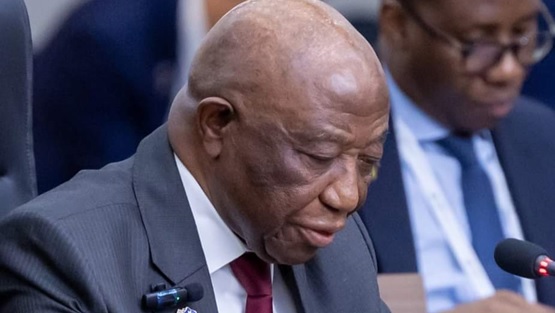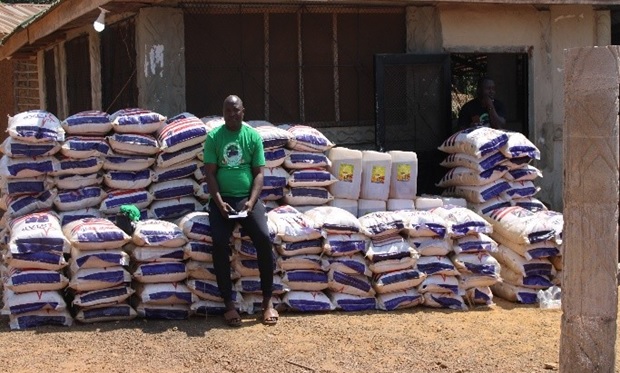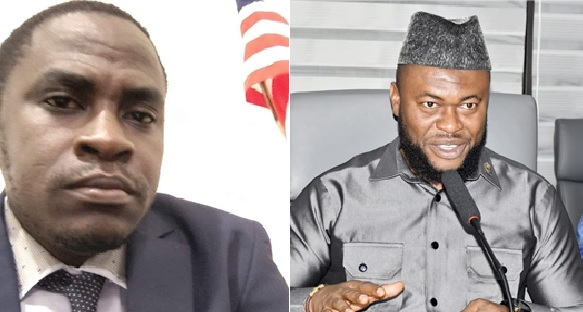MONROVIA – Liberia stands at a crossroads, with its president, Joseph Boakai, facing a defining moment that will either solidify his legacy or tarnish it irreparably. Michael Rubin, a senior fellow at the American Enterprise Institute, recently shed light on the precarious balance Boakai must navigate. In his article, “With Biden Exiting, Liberia Should Put Justice Above Human Rights Profiteers,” Rubin explores a long-standing issue: Liberia’s inability to hold accountable those who profited from its bloodshed.
For over two decades, figures who thrived amid Liberia’s civil war have evaded justice. Some have even ascended to influential positions, such as mayoralties and legislative offices. The Truth and Reconciliation Commission (TRC) recommended the establishment of a War and Economic Crimes Court over 15 years ago. Yet, successive Liberian administrations shelved the directive, prioritizing political expediency over justice. Boakai, who assumed office a year ago at 80, vowed to break this cycle. He intended to establish the court and address the festering wounds of impunity—a promise that resonated with many Liberians yearning for justice.
Boakai’s commitment initially seemed steadfast. His appointment of Jonathan Massaquoi, a legal luminary who had successfully dismantled dubious testimony schemes orchestrated by organizations like Civitas Maxima, signaled a fresh approach. Massaquoi envisioned a hybrid court modeled after the Sierra Leone Special Tribunal. This model combined international expertise with local knowledge, offering mentorship and capacity-building opportunities for Liberian legal professionals. Such a court would not only deliver justice but also fortify Liberia’s judicial framework for generations to come.
However, Rubin points to an insidious challenge: the commercialization of human rights advocacy. International NGOs, including Civitas Maxima, have been accused of prioritizing profits over principles. Civitas Maxima, a Swiss-based organization, once enjoyed uncritical acceptance from prosecutors in the U.S. and Europe. Yet, in recent years, courts across continents have dismissed cases linked to the organization due to evidence of witness payments and fabricated testimonies. Despite these controversies, entities like Civitas Maxima continue to wield significant influence, thanks in part to allies in diplomatic and human rights circles.
Beth Van Schaack, the Biden administration’s ambassador-at-large for Global Criminal Justice, is a key figure in this saga. Van Schaack previously worked with the Center for Justice and Accountability, which maintained ties with Civitas Maxima. According to Rubin, instead of addressing allegations of fraud and negligence against her former colleagues, Van Schaack shielded them, dismissing criticisms as threats to civil society. Rubin counters this narrative, asserting that robust civil societies should embrace scrutiny and debate, not suppress them.
Rubin alleges that Van Schaack and her allies at the United Nations pressured Boakai to dismiss Massaquoi. The purported ultimatum suggested that failing to replace Massaquoi with a Civitas Maxima-approved candidate would jeopardize U.S. funding for Liberia’s War and Economic Crimes Court. Though such a threat may have been baseless—U.S. funding decisions are not solely Van Schaack’s prerogative—it nonetheless influenced Boakai, who opted for caution over confrontation.
As Rubin notes, this decision places Boakai’s legacy on shaky ground. By acquiescing to external pressures, Boakai risks aligning his administration with those who prioritize financial gain over justice. This not only undermines Liberia’s sovereignty but also dashes the hopes of victims who have waited decades for accountability.
Van Schaack and her diplomatic colleagues will soon exit their roles, offering Boakai an opportunity to reassess his approach. The president’s next steps could determine whether he is remembered as a statesman who championed justice or a leader who succumbed to external manipulation. Rubin argues that Boakai must restore Massaquoi to his position and reject the influence of entities like Civitas Maxima, whose motives have been called into question.
Liberia’s pursuit of justice is more than a political or legal endeavor; it is a moral imperative. Establishing a credible War and Economic Crimes Court would not only address past atrocities but also signal a commitment to transparency and accountability. It would inspire confidence in Liberia’s institutions and demonstrate to the world that the nation values justice over profit.
Boakai’s presidency presents a unique chance to reshape Liberia’s narrative. The world is watching, and Liberians deserve a leader who prioritizes their aspirations for justice over the vested interests of international NGOs and their enablers. Boakai has the power to redefine Liberia’s trajectory, but the window for decisive action is narrowing.
History will judge Joseph Boakai not for the challenges he faced but for how he responded to them. Will he rise to the occasion and champion justice, or will he allow his administration to be co-opted by profiteers masquerading as human rights advocates? The answer will not only define his legacy but also shape Liberia’s future.







